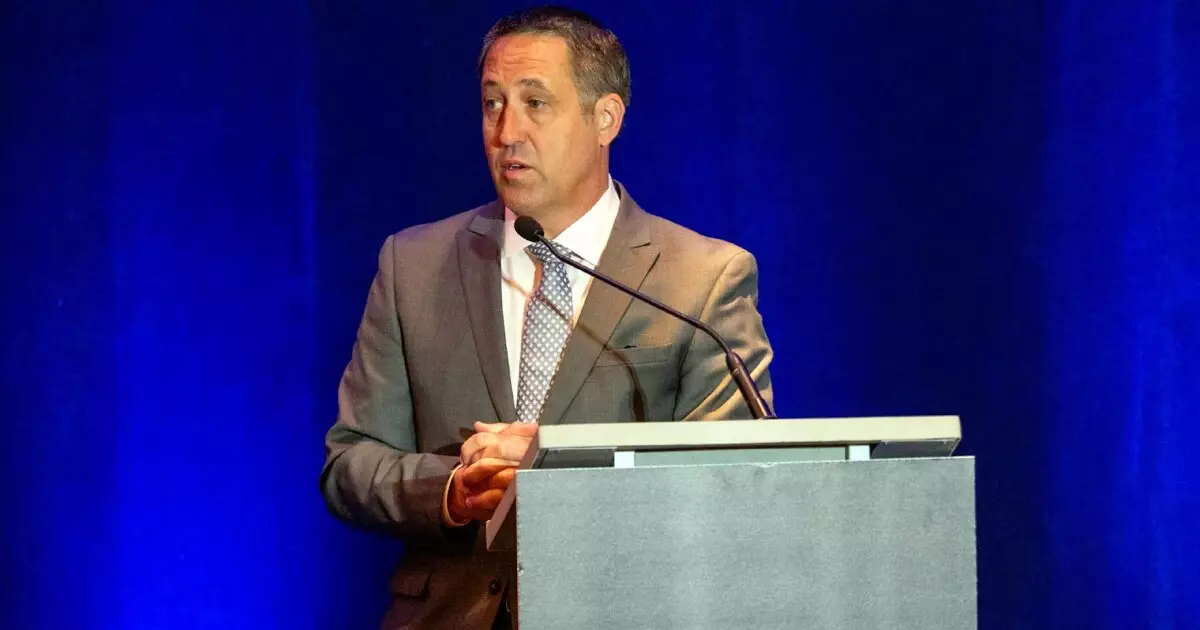In a significant turn of events, BlackRock Inc. has recently been reinstated to Texas’ investment arena after being banished from its list of companies that “boycott” fossil fuels. For three long years, the world’s largest asset manager endured the repercussions of Texas’ backlash against its perceived green agenda. This pivotal change not only highlights the shifting political winds regarding corporate environmental policies but also poses broader implications for economic autonomy and market choices within the energy sector.
Reclaiming Billions: A Financial Rebirth
Texas manages more than $300 billion in state-run pension and investment accounts, and its decision to welcome BlackRock back means that these funds can once again invest in BlackRock’s shares and financial services. This is no small matter; the absence of such a formidable player has left vulnerabilities in Texas’ investment strategy and risk management opportunities. Businesses thrive where there’s competition and diversity in financial partnerships, and this reopening of access could ignite both invigorated economic activity and yield lucrative returns for the state.
An Unexpected Shift in Green Initiatives
State Comptroller Glenn Hegar noted that BlackRock has scaled back its green initiatives, including withdrawing from initiatives like Net Zero Asset Managers and Climate Action 100+. This shift raises eyebrows, especially among environmentally conscious investors. However, from a center-right perspective, such pragmatism is crucial. The imperative should be placed on economic viability over token environmentalism. The hard truth is that energy demands and economic realities often clash with idealistic environmental policies. BlackRock’s change might not just mirror market dynamics; it could embody a more pragmatic approach to investments that prioritize stable energy production and job preservation.
Partnerships and Political Alignments
Larry Fink, BlackRock’s CEO, has actively engaged with Texas leaders, highlighting a strategic outreach that underscores a savvy understanding of local concerns in the energy sector. His collaboration with figures like Lt. Gov. Dan Patrick signifies more than mere networking; it reflects a commitment to integrating corporate strategy with state interests. Fink’s appearances at conservative events and the firm’s support of the Dallas-based Texas Stock Exchange are steps towards cementing relationships that can benefit both parties. This partnership model may serve as a blueprint for other corporations seeking to navigate the murky waters of political endorsement and corporate values.
Why This Matters Beyond Texas
BlackRock’s comeback in Texas should serve as a wake-up call for other states grappling with similar dilemmas between the environmental agenda and economic growth. As they ponder their policies, they should consider the potential drawbacks of alienating corporate actors who can drive innovation and investment. In this era of global economic uncertainty, prioritizing financial freedom over ideological rigidity could usher in a more sustainable model for collaboration between the corporate sector and state interests. The concern shouldn’t just be about what companies advocate but rather about the broader implications for jobs, investment, and economic stability that can often be lost in the environmental discourse.
As we witness these shifts, the hope is that Texas can set an example for a balanced approach, allowing for both environmental considerations and the economic freedoms necessary to foster growth. The union of these two realms is challenging but essential for long-term prosperity and sustainability.

